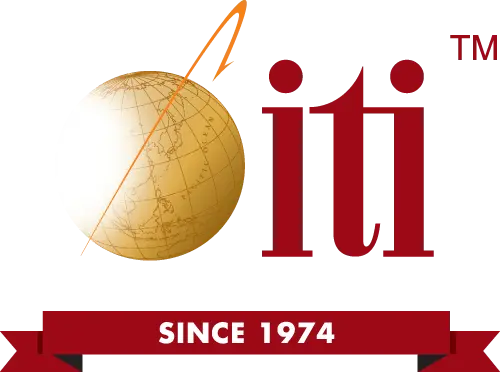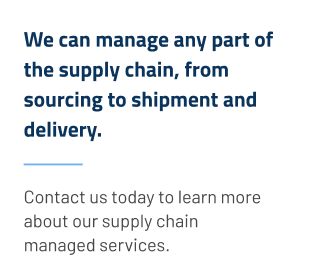
For domestic OEMs (original equipment manufacturers), inventors and product developers, the toughest part of bringing a product to market might seem like the upfront development and engineering work. The development phase is challenging, but the next steps in pursuing market engagement can be even harder. Once an OEM has a good idea of how end-users will use the new product, they may seek out a contract manufacturing organization to produce their products at volumes and costs that align with their sales expectations.
Along the way, OEMs will reach out to potential suppliers, requesting manufacturing quotes that balance risk and reward: the risk of a manufacturer not fulfilling requirements and the reward of a successful, profitable sales cycle. This makes selecting a contract manufacturer a little bit art and a little bit science. It’s critical to ask the right questions when interviewing prospective suppliers.
The art of questioning suppliers susses out critical information that the manufacturer may not otherwise want buyers to know: things that influence their profitability, usually, such as cutting corners on quality and being inconsistent with their promised deliverables.
On the other hand, the science of questioning focuses on tangible technical details that directly impact the products being made. Here, OEMs should look for specification-level data that speaks to the manufacturer’s quantifiable capabilities. This can take the form of machine and tooling specs, material sources and compositions, and even whole-plant operational capacities and trends.
Why Bother?
Between both the art and the science, buyers should be unabashed about requesting transparency and honesty from potential suppliers, as these questions can make all the difference between a successful project and a business-threatening nightmare.
Specifically, we ask questions for these reasons:
- Informed decision-making: There is no room or necessity to gamble when selecting an outsourced factory. If for no other reason, buyers should question manufacturers so that they know what they’re getting into, setting up the highest level of informed decision-making possible.
- Mitigating risk: Risks are everywhere in outsourced manufacturing, including the risk of delays, inferior quality, communication barriers, labor shortages, material mismatches and many more. These risks can only be mitigated if they’re brought into the light through thorough questioning.
- Clear expectations: Though it would definitely help when engaging with suppliers, the ability to read minds is still the stuff of science fiction. The next best thing we have is ample communication, driven by tactical questions meant to set and maintain clear expectations about a project.
- Financial responsibility: Buyers wouldn’t normally throw money into the trash, but when supply chain engagements are made more on faith than informed reality, it quickly becomes the same thing. Questioning manufacturers avoids the unexpected, and is the financially responsible thing to do.
- Legal and regulatory compliance: Some outsourced manufacturing organizations can be slow and very resistant to elaborate on legal and regulatory history: good, bad or otherwise. Contract methodology, litigation history, compliance conformance and the like are good topics to explore when questioning a manufacturer.
Key Questions When Evaluating Potential Contract Suppliers
As buyers progress through a supplier search, thorough vetting quickly becomes one of the most obviously important steps to get right. We recommend that buyers always go through a formal pre-qualification process with prospective suppliers, which should include healthy dialogue asking questions such as these:
Organizational Questions
- How large is your organization, in terms of workforce and production capacity?
- What is your organization’s history?
- What types of products, projects and clients do you typically take on?
- What are your competitive advantages and distinctions?
Questions that target a manufacturer’s organization and corporate elements are meant to assess an early, high-level fit with the buyer’s objectives. Too often, a manufacturer’s marketing material or website will display plenty of capabilities that are in fact aspirational, and not necessarily what the manufacturer has solid experience performing. This is why we ask questions about actual historical project experience, workforce and company history. It’s one thing to state what a company “can do,” but it’s quite another to say what a company “has done.”
Commercial Questions
- What is your annual revenue and financial capacity?
- What are your insurance limits and details?
- What amount of your current cashflow will our project represent?
- What exact inclusions, exclusions, assumptions and clarifications accompany your proposal?
Contract manufacturing is a commercial engagement, exchanging goods for payment fueled by both parties pursuing a profit motive. As such, both sides of the engagement have profit at risk should the other party not uphold their end of the bargain. For this reason, buyers should ask plenty of questions to make sure that their financial forecast has a more-than-reasonable chance of becoming reality. The largest risks on the commercial front tend to be with a manufacturer’s ability to cashflow the project, followed by murky terms and conditions that lead to financial surprises later in the engagement.
Technical Questions
- May we review your quality assurance program?
- Do you have any technical third-party registrations, certifications or other compliance approvals (such as ISO 9001 certification)?
- What technical specifications, restrictions, compatibilities and other details do you offer as they relate to our order?
- How will our order be executed? List all production and quantitative steps, including QC checks, inspections, analytical tests and communication points.
No matter how great a prospective manufacturer fits the organizational and commercial requirements of the project, a deal won’t be possible if they do not possess the technical competence to perform. Buyers should question the manufacturer’s tooling, business processes, labor skills, production management and quality management elements at the very least. Ideally, a manufacturer will have third-party certification in relevant areas to assure such technical compliance.
Look Inward Before Engaging an Outsourced Manufacturer
Asking the right questions of potential suppliers is certainly important, but equally important is for prospective buyers to look inward at their own visceral needs before locking in a contract manufacturing organization. Each buyer has their own unique set of expectations and underlying assumptions about a given project that warrant being pulled out into the light to ensure they align with the answers received to the above questions. In this way, evaluating a contract manufacturing organization is a two-way street: one way leading out to the prospective supplier and the other leading back to the buyer.
Internalized questions that each buyer should consider when reviewing the answers provided by their suppliers include:
- Are there multiple ways to interpret each answer we’ve received?
- Does this supplier strategically align with my business objectives, goals and core values?
- What risks will my business be exposed to with this supplier?
- Does this supplier reflect our expected standard of care and brand identity?
- Have we fully and clearly communicated our expectations?
Asking these types of internalized questions of ourselves helps us make sure we’re thinking through the implications and alignment of an outsourced manufacturer’s answers, but there is one more step. The manufacturer should ask detailed questions in return because it demonstrates their ability to professionally evaluate projects for a fit to their organization.
As a buyer, you should pay attention to and measure the quality of questions asked by the manufacturer, because it will give you a third way to evaluate how well the prospect fits with your needs. If you receive intangible or seemingly random questions, perhaps the manufacturer is not fully invested in the details. Worse, if you, as the buyer, receive no questions at all, the manufacturer is likely out to lunch or ill-suited entirely.
The best-case scenario is that a buyer is asked thoughtful, informed, relevant questions that help further their thought processes. The line of questioning from the manufacturer demonstrates that the prospective contract manufacturing organization is stepping up as a true partner serving to benefit both parties mutually.
Helping You Choose The Right Outsourced Manufacturing Organization
At ITI Manufacturing, we understand the critical process of pairing products with the right factory. If you have questions, we’re eager to answer them. Just contact us today.




